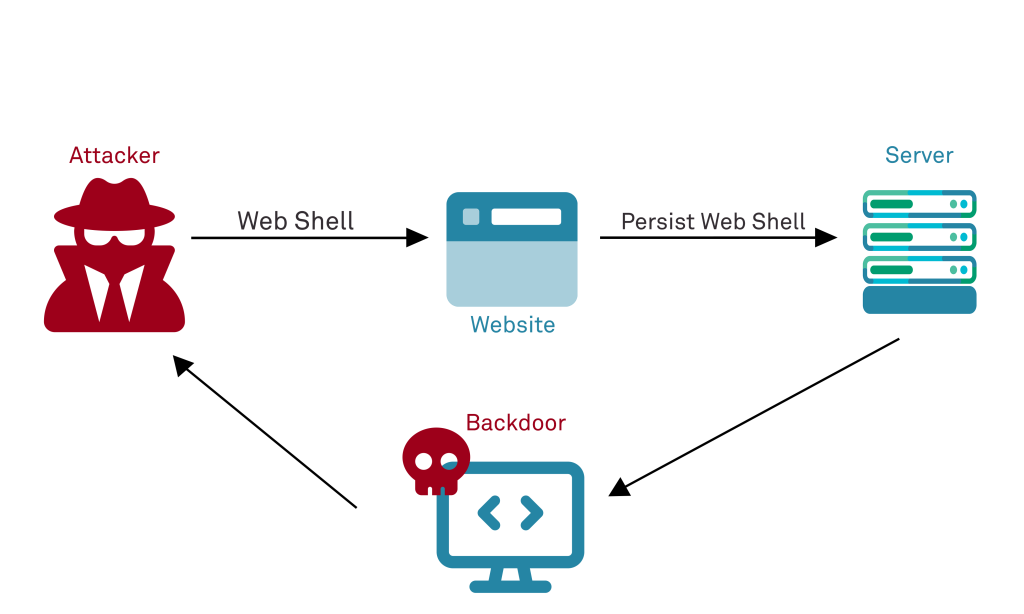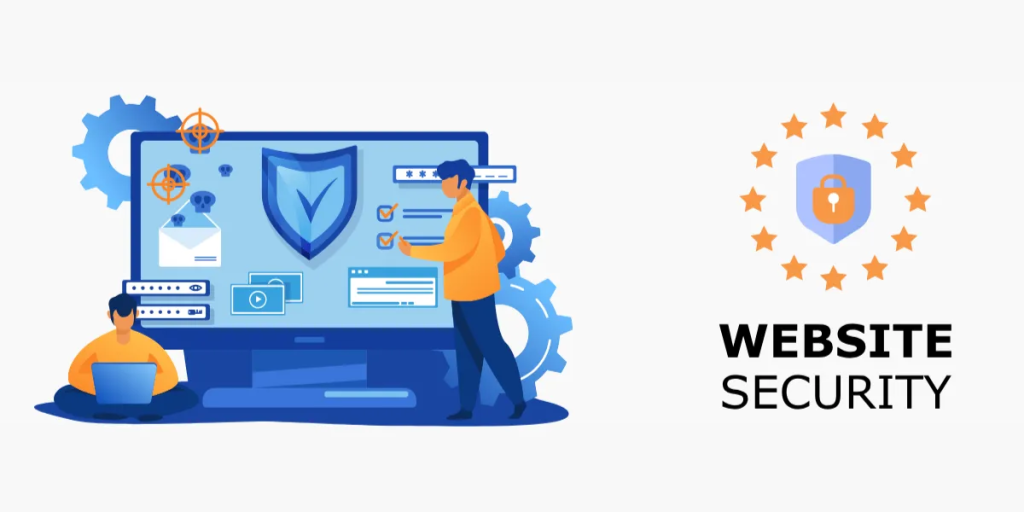The year 2025 marks a period in which Dubai’s digital world has become hyperactive and integrated. The security of a website is extremely vital as businesses and customers shift to digital platforms, as it is the first line of protecting sensitive information such as data and user trust. With Evolving cyber threats, businesses must now have advanced defenses to ensure the protection of sensitive information. This article details the must-have security features for websites in Dubai in 2025.
Security Protocols: A Key Priority Worldwide and in Dubai

As criminals evolve and find new methods to breach sensitive information, regions such as Dubai must implement sophisticated security measures. In Dubai, known for its fierce competitors in modern technology, online business and e-business has rapidly grown over the years. With escalations come a new set of challenges. Websites that are responsible for storing lower, intermediate and higher tier information such as banking details becomes top priority for criminals because it allows them to hack both individuals and business entities simultaneously. Implementing security procedures is critical to counter the threats posed – must protect the organization along with the customers.
Recommended Security Measures for Dubai Based Websites in 2025
1. HTTPS With SSL/TLS Certificates

HTTPS, or secure hypertext transfer protocol, is one of the vital website security features which forms the backbone of any website. HTTPS prevents unauthorized access during communication and data exchange by protecting browsing sessions with encryption to prevent listening or spying by other third parties. Installing SSL/TLS certificates not only protects the transmission of data but also helps enhance the reputation of your site and its rankings in Search Engines because Google, and other search engines prefer secure sites.
2. Multi-Factor Authentication (MFA)

Multi-factor authentication allows adding additional verification for a user by requiring two or more verification factors that need to be presented to access a webpage or application. Such factors can be agreed secrets (password), possession objects or tokens (smartphone or hardware), and personal attributes (biometric verification). Even when the password is breached, the risk of unauthorized access is greatly diminished with the implementation of multi-factor authentication.
3. Web Application Firewall (WAF)

A Web Application Firewall filters and monitors traffic to your website, blocking HTTP threats and filtering web traffic. A WAF provides protection from cyber threats to your website and web applications, preventing attacks like SQL injections, cross-site scripting (XSS), and a multitude of other web-based attacks.
4. Regular Security Audits and Vulnerability Assessments

Website security audits and vulnerability assessments capture untapped value by identifying security issues that no one else has fixed. Regular vulnerability assessments pinpoint obsolete software, improper configurations, and other flaws which attackers might use to exploit your company’s systems. With constant auditing, your website can stay compliant along with industry standards.
5. Secure Content Management System (CMS)

For websites constructed via a CMS such as WordPress, Joomla, or Drupal, it’s vital to renew the platform and its associated plugins. These provide easy entry to cybercriminals if left outdated. Enabling automatic updates for your CMS ensures that security flaws are patched which ultimately helps fortifying your website’s defenses.
6. Data Encryption at Rest

Protecting sensitive data while in motion should be done in accordance with how data is protected while it is at rest. In other words, information should be in an encrypted format while being stored in databases or filed so that the data cannot be accessed by any unauthorized personnel in the event that a data breach occurs. The use of strong encryption standards guarantees that such data, if unprotected or wrongfully accessed, cannot be viewed in a readable format.
7. Secure File Upload Mechanisms

Providing users with the ability to upload files can pose a security risk if not configured thoughtfully. By implementing secure features such as file extension and size limitations as well as malware inspection, your system can’t be fed harmful files and can protect your website from potential misuse and ensure the safety of users.
8. Regular Backups and Disaster Recovery Plans

Restoring potential data records over cyber attacks, possible malicious hardware components, or restoring the entire database due to hardware problems requires a backup of the stored files, making it imperative that the files are backing up periodically. Effective strategies must be in place to ensure the restoration of the website within a set timeframe. This eliminates prolonged downtimes. Further, the presence of the plans ensures that your team can respond promptly and fast towards an attack.
9. Securing Application Programming Interfaces (APIs)
APIs allow various software applications to communicate or integrate with each other, but they may serve as points of attack by cybercriminals. Safeguarding your APIs with authentication, encryption, and routine audits mitigates the chance of unauthorized access and breaches to your website. Following these practices helps maintain control over the data exchanges and protects the APIs.
10. User Training and Education

Training users on the online best practices makes for a neglected facet of website security. Guiding users on crafted resilient passwords and identifying phishing attacks as well as safe browsing enhances user ability to protect themselves and your website, indirectly. Providing information to users so as to constantly change security posture helps further improve online safety.
The Importance of Custom Web Development Services in Improving Website Security

Custom web development services offer businesses in Dubai the opportunity to build websites tailored to their specifications and individual security details. Off-the-shelf solutions are less efficient since custom websites can have additional security layers planned and integrated during initial design phases. Secure coding, frequent security audits, and adherence to the governing laws like the UAE’s data protection act are essential to incorporate.
A good website development company will evaluate your business profile and formulate a security policy that fulfills your needs. With a custom-built solution, you can be certain that your website will work effectively as well as barricade against future vicious cyber attacks.
Where to look for Devherds as your website development company in Dubai
When speaking of bespoke web development services Dubai has to offer, Devherds is listed among the top website development companies in Dubai. Here’s why.
- Web Security Expertise: Devherds applies industry standards as far as the web security of your website is concerned. They are constantly audited on latest security measures and their site security policies are invulnerable.
- Business-friendly Packages: As every business is different, Devherds knows how to tailor bespoke web development services that meet your business profile and security concerns.
- Complete Packages: From the first consultation and design to the actual development and maintenance servicing, Devherds offers complete packages ensuring your website is vibrant and well-protected.
- Proven Experience: Devherds is known to possess a portfolio depicting numerous projects successfully completed in various sectors illustrating his prowess in crafting secure and efficient portals.
- Individual Approach to Customers: Devherds values their customer’s needs as they effectively collaborate with them to achieve an ideal website.
What Makes Devherds Dubai’s Finest Website Development Company?
Website Security and Maintenance Support
In 2025, cyber threats are not issues that happen once, they are ever present and change with time. This means no one on earth can ever rest easy. That explains why Devherds does not just set up a website and assumes it is safe. They offer ongoing support and security alterations, which involves:
- Routine vulnerability scans
- Active security tracking
- Consistent software adjustments and updates
- Emergency technical assistance
Such advances ensure that a website would not greatly fall behind the security line, thus earning long term reliance for hosting customers on their security servers.Understanding the Local prerequisites and Compliance
Establishing a website in Dubai demands compliance with data privacy regulations such as the Personal Data Protection Law (PDPL), part of the overarching UAE Data Protection Regulation. Devherds specializes in website development that meets both international and local standards, including: GDPR citywide users,
PDPL compliance pertains to data stored or processed within the boundaries of UAE
PCI-DSS to secure online commerce transactions
Their legal and technical team ensures compliance and mitigation of fines for your business. In the case of Dubai, swiftly emerging as one of the world’s premier tourist destinations, where mobile phone usage garners preference over desktops for browsing, Devherds builds every website with a mobile-first approach. That means your site is optimized not only for various screen sizes, but as well as secure by design, built with advanced coding at every level of development.
They practice secure coding principles, like: Input validation against XSS and SQL injection attacks
Data sanitization for removing hostile input
Access Control for Clear-cut Roles Definition
To pave the way for lethal and non-lethal attackers, this mobile-first security- by-design approach creates a multiple layered protection posture for PCs, tablets, and smartphones.
Integrating UX with Security — A Balanced Approach
An area in which Devherds excels is balancing user experience (UX) with rigorous security measures. Too many websites fall afoul of the usability versus security traps; either overly secure to the point of being difficult to use, or too user-friendly to the point of exposure. In case you also need bespoke web development in Dubai, Devherds makes sure that your project does not only have modern design but also robust defensive layers.
For example, they offer:
- User-friendly seamless multi-step login protections.
- Accessible spam and bot shields that do not interfere with authentic user traffic.
- Biometric login features for mobile applications (face scanning and fingerprint logins).
Tailored Solutions for E-Commerce, Healthcare, Finance, and Others
Every business has different requirements when it comes to security. Devherds customizes each site’s security protocols according to the type of business you operate:
For E-commerce Sites:
- Payment gateways that are PCI-DSS compliant.
- Transactions that use tokens for secure checkouts.
- Fraud prevention tools.
- For Healthcare and Medical Portals:
- HIPAA conformant data silos (if outside the US).
- Highly classified data dormitories with detail access restrictions.
- Secure portals for patient and appointment scheduling.
For Financial Services:
- Complete encryption for sensitive information and documents.
- Immediate fraud detection and monitoring.
- Secure information and multi-role access dashboards.
Devherds builds websites and entire digital ecosystems that are secure, compliant, and scalable for brands across these sectors.
SEO and Security, the Duo that Makes All Magic Together.
Websites utilizing HTTPS and modern web security are ranked higher on google search. Did you know this? Yes, site protection is used as one of the website ranking determinants for google.
Devherds know this quite well. This is the very reason why their web development strategies aim not only to safeguard your site, but also enhance organic visibility by means of:
- Accelerated loading speeds
- Protected indexing of pages
- Orderly URLs that can be crawled
- Reduction of duplicate content via secure redirects
With effortless security and SEO integration, Devherds guarantees that your website will not merely survive in 2025, but will flourish.
Final Thoughts: Your Website Security Strategy for 2025 and Beyond
As we move further into a future driven by AI, big data, and global connectivity, website security will only grow in importance. For businesses in Dubai, this means staying one step ahead by implementing the top security features we’ve outlined in this guide—from SSL encryption to secure CMS practices, and from secure file uploads to regular audits.
What You Should Do Next:
✅ Audit your current website security setup
✅ Identify potential vulnerabilities
✅ Upgrade your tech stack if necessary
✅ Partner with a reliable website development company like Devherds
Why Devherds Should Be Your First Call in 2025

Let’s recap why Devherds is the top choice for custom web development services in Dubai:
✅ Industry-Leading Experience in Website Security
✅ Experts in UX/UI + Security Integration
✅ Strong Portfolio in Multiple Industries
✅ Full Compliance with UAE and Global Laws
✅ End-to-End Development, Launch, and Maintenance Support
By partnering with Devherds, you’re not just getting a website. You’re getting a digital fortress designed to support your growth, protect your users, and comply with the most stringent standards of 2025 and beyond.








